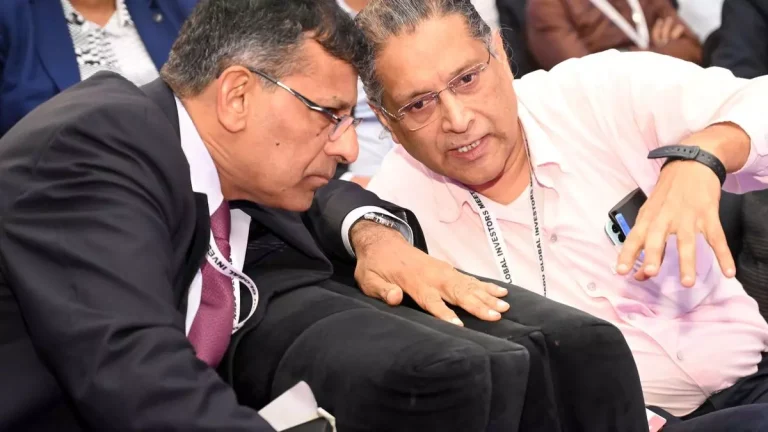Tamil Nadu needs to focus on both high value-added manufacturing and services, as well as low-skilled manufacturing that generates large-scale employment, while keeping an eye on public debt, they said. supported renowned economists Raghuram Rajan and Arvind Subramanian.
The state has set an ambitious goal: to become a trillion-dollar economy by 2030. Rajan and Subramanian believe the state’s goal is achievable, the economists said in a session at from the Global Investors Meeting here.
However, the state needs to grow 18 percent over the next 7 to 8 years to achieve its goal of a trillion-dollar economy. Even China has only managed to grow between 10 and 12 percent in 40 years. The state’s goal is ambitious and if there is any state in India that could do it, it is probably Tamil Nadu. Besides, if there is any time in history when this could be done, it is now,” Subramanian said.
While Subramanian felt that the decline of China’s manufacturing sector would pose a big opportunity for India to seize and provide opportunities in some selected sectors where large-scale employment could be generated, Rajan felt that it was time that the state is focusing more on high-end value added. segments. “China remains an attractive country for the manufacturing sector. But we have more highly skilled engineers than Europe and should target specialized manufacturing,” added Rajan.
Skilled labor
However, both economists agree that skilling the workforce would be an urgent necessity to compete with China in manufacturing, as most industries face a shortage of skilled workers. Despite rising labor costs, Tamil Nadu has attracted manufacturing companies and this indicates that the state offers a better-skilled workforce.
While focusing more on high-end value-added jobs, Tamil Nadu could use migrant workers to maintain its position by attracting low-skilled workers. However, Subramanian said the state should rise above the political challenges that migration could bring.
Referring to Tamil Nadu’s high public debt, the two economists said it was not alarming, but needed attention. Subramanian said one-third of the debt was attributable to DISCOM and the state was engaged in institutional reforms.
Rajan pointed out that a combination of factors could help the state maintain its public debt. Tamil Nadu is expected to ensure steady revenue growth, minimize expenditure and continue to attract large investments.
Responding to the need to boost FDI in the state, Subramanian said while the state creates the FDI trajectory, it should continue to focus on providing stable policies, ensuring social stability and improving ease to do business while carrying out certain institutional reforms.



